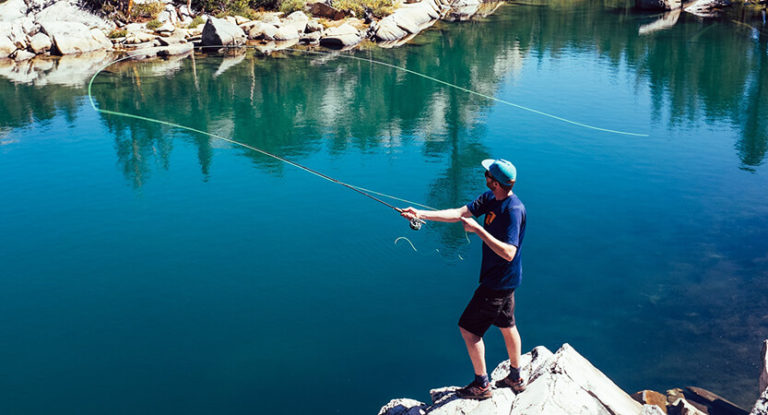Going fishing, we go not only for the catch, but also for pleasant sensations – adrenaline hunting for a predator or bottom or float fishing. What prompts us to go fishing in the rain and bad weather? All the same hunting, which, according to the saying, is worse than bondage: for a true fisherman, bad weather simply does not exist.
But will it bite in unfavorable weather conditions for humans? This is another question. This depends on many factors: the time of the year, the local conditions of the reservoir, the method of fishing, the preferences of a particular type of fish. And a good fisherman always bites: he knows how to adapt to any conditions.
Here is an overview of the content of this tutorial, feel free to jump to any section you care about:
For more fishing instructions, take a look at these popular Trizily links: Best Spinning Reels, Best Baitcasting Rods.
- What Factors Affect Fish Biting
- What You Need For Winter Fishing
- How To Fish With A Wobbler (Complete Guide)
Effect of rain on fish biting
Let’s start with the fact that rain is different. It can be a shallow, lingering drizzle, a disputed mushroom rain, a downpour with a squally wind, and so on. To put an equal sign between them is, at the very least, unreasonable.
Definitely: the presence of rain affects the activity of representatives of freshwater ichthyofauna. But positively or negatively, it depends on general weather conditions and local factors. By itself, rain is indifferent to fish – you yourself understand that it is not felt under water. However, he:
- helps to increase the concentration of oxygen in the water, which is beneficial in summer heat;
- promotes the formation of waves washing food from the bottom layers;
- makes the water more cloudy, which, depending on the severity, can increase or decrease the intensity of the bite.
Accounting for other weather factors
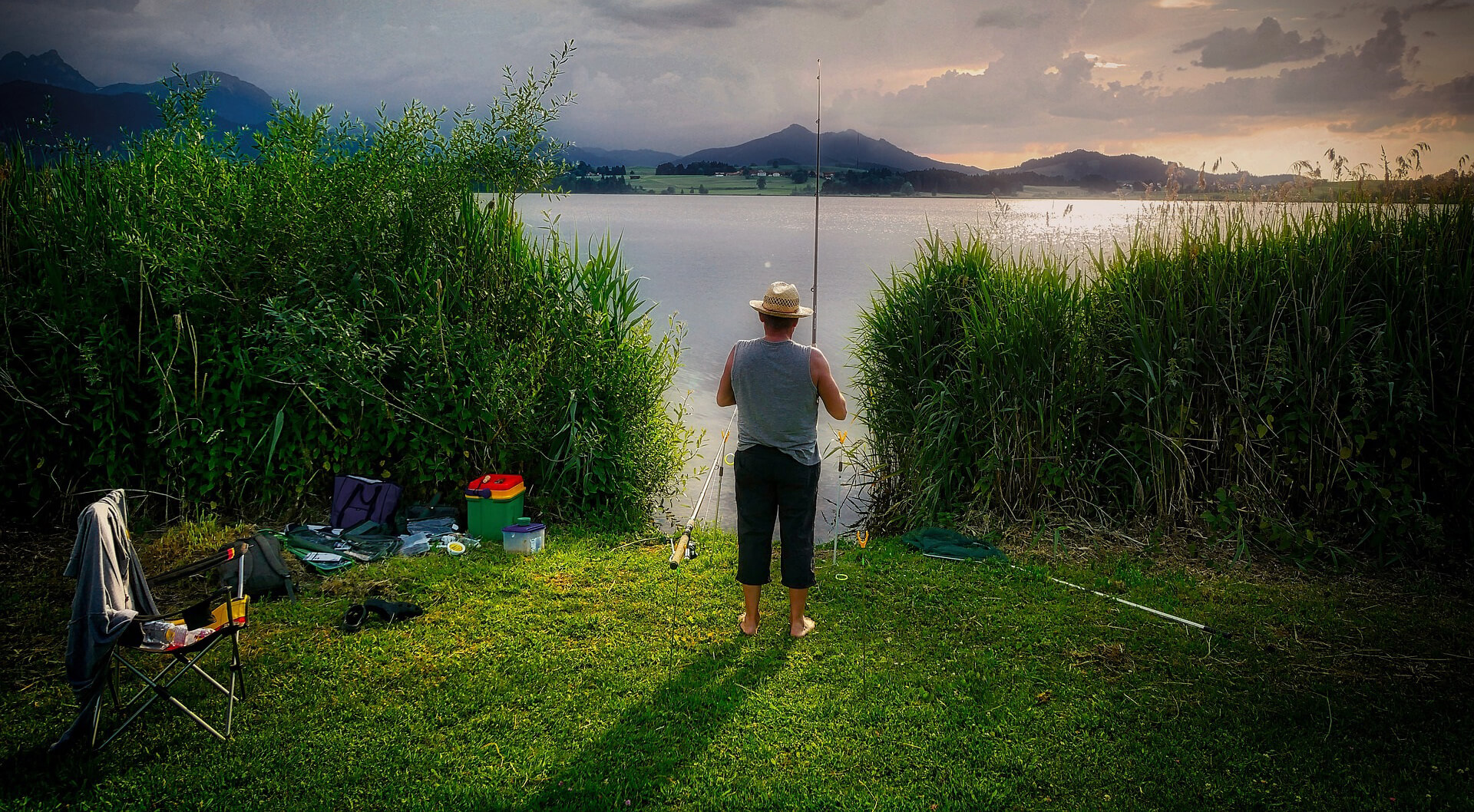
The threshold of bad weather is characterized by a decrease in atmospheric pressure , which is sensitively captured by representatives of the ichthyofauna. Ichthyologists believe that the special sensory system of fish, and more specifically, the lateral line receptors and the swim bladder , play an important role in this .
A sharp drop in pressure should be regarded as a negative factor: fish need some time to adapt to new conditions. Although at the expense of what – it is not clear to this day: the fact is that the fish constantly changes the depth of residence, which provides a much more abrupt change in pressure than the whims of some kind of atmospheric column.
Nevertheless, it should be taken for granted: the fish usually reacts favorably to a gradual decrease in pressure, and to a sharp one, temporarily stopping activity. True, after that, already in the rain and bad weather, fishing can become surprisingly productive due to the onset of total gluttony.
Wind conditions are of no small importance . Strong winds from any direction adversely affect fishing for any fish, regardless of the presence / absence of rain. It raises a high wave, which is especially bad for float fishing . The bait sways like on a swing, and it is simply difficult for the fish to keep track of it, especially if it is already passive.
But a light or moderate wind blowing from the west or south should be taken with optimism – it often portends good fishing.
In the spring, during the pre-spawning period, the fish pays less attention to the wind conditions and precipitation. In summer, a spore mushroom rain in a moderate wind after the heat is an ideal option for activating the bite. But prolonged rains, combined with persistent cloudy weather, are not very favorable: the fish shows proper activity mainly during periods of enlightenment. The rest of the time, she has little interest in the most delicious baits.
Autumn is a time of unpredictability. During this period, rain can both increase biting and reduce fish activity to a minimum. We can definitely say that bad weather with a gusty wind is not the best time for autumn fishing from any side.
After rain, representatives of the ichthyofauna can show a remarkable appetite, especially when it comes to the summer shower, which gives life-giving oxygen and ionization. Occasionally, the opposite phenomenon is observed: in the midst of the elements, the fish takes any bait, as if possessed, and after it, it practically ceases to be interested in its favorite food. An explanation for this phenomenon has not yet been found.
It has been noticed that white fish are more sensitive to the vagaries of the weather than a predator. Perch and pike, so to speak, are all-weather: they can go hunting in the worst weather.
A word of caution: Fishing in rainy weather can be dangerous. In this case, we are talking about thunderstorms, often accompanying heavy showers. Wet rods conduct electricity very well, which is often reported by their manufacturers (in the form of direct instructions or corresponding pictograms). A lightning strike on a blank can be fatal to the angler, and such risks are incomparable with the most intense craving for a solid catch.
The choice of reservoir
Heavy rain is often accompanied by cloudy water. If it is not too pronounced, you should not worry: all the same, the vision in fish is weak and when searching for food they are guided by other senses (mainly by sense of smell and seismic sensitivity). But the total turbidity of the water is guaranteed to discourage the appetite from the representatives of the fish fauna. This means that during this period there is nothing to do on silted ponds and shallow water bodies with a soft bottom. Better to go to a large river or lake with a hard (sandy, shell or pebble bottom).
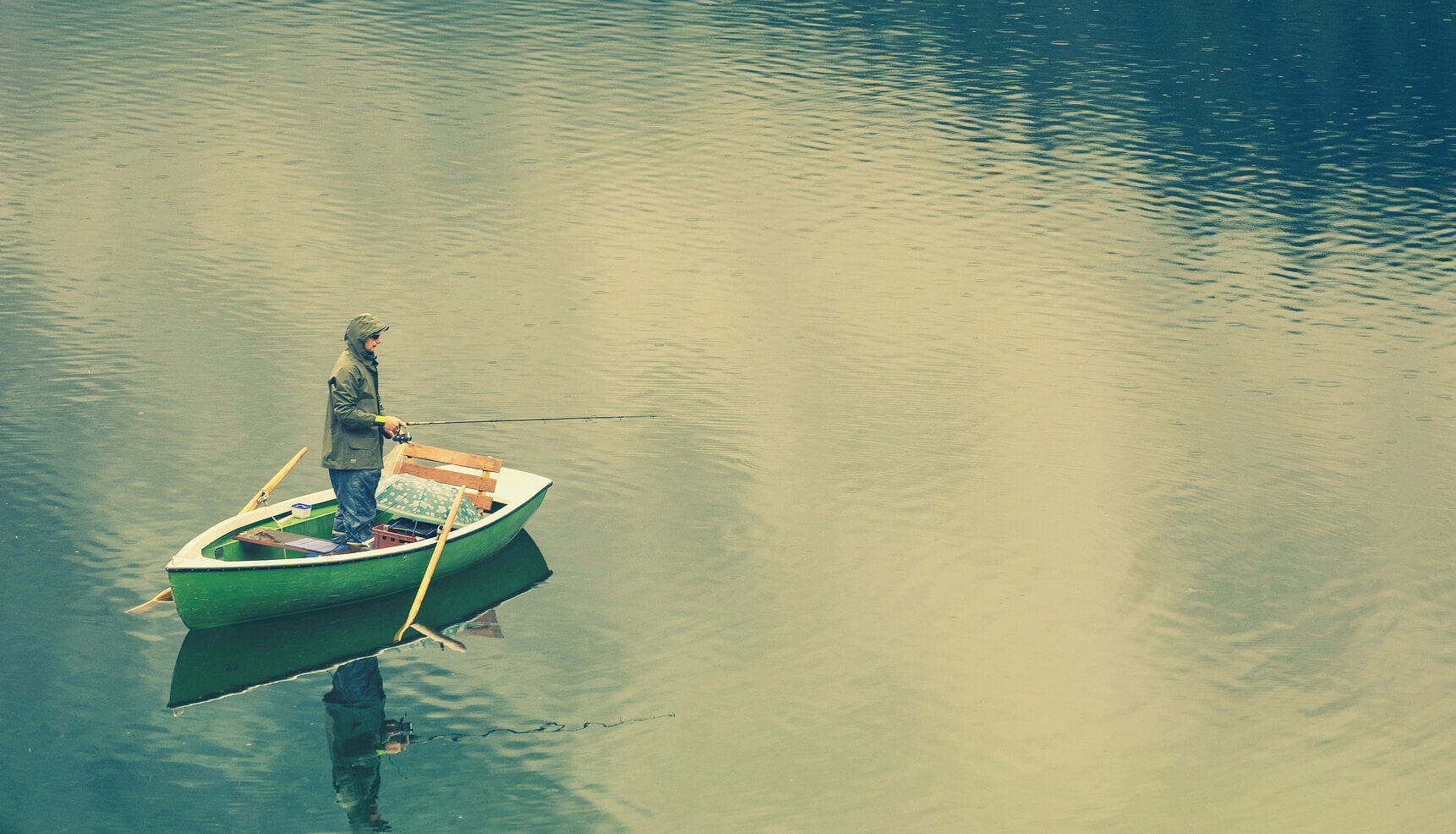
On lakes and large rivers, it is better to choose a place near the confluence of tributaries or on springs that supply the reservoir with clean water – there is less turbidity there.
If you have a choice, it is better to take a place on the windward side – a lot of fish delicacies washed from the bottom are nailed there. Most of them are collected, as expected, on the edges and dumps, as a result of which the concentration of peaceful, and behind it – of predatory fish increases there.
On small rivers, it is better to stick to the opposite position: sit downwind, throwing gear to the windward bank. And if possible, it is better to choose the least wind-blown place: when there is a squall, it is almost impossible to throw the tackle, and in the very process of catching there is little pleasant.
Features of catching in the rain
In rainy weather, the fishing tactics need to be adjusted, since most of the fish fauna prefers to go to considerable depths. Fishing near the shore is not very promising, especially if high waves roll in. The fishing area should be located behind the upper edge – this is where most of the edible is nailed. The situation is further complicated by the fact that a good cast with a strong head or crosswind is problematic, and the float is washed to the shore by a wave.
This means that passive float fishing from the shore can only be effective if it is possible to cover the appropriate distance when casting. If there is no high wave, a little rain is drizzling, and the casting is carried out behind the line of coastal vegetation, you can heartily pull on crucian carp, roach and scourge.
In such conditions, bottom gear (feeders and carp rods in all forms) can be very catchy. Even passive fishing at a distance of up to 20-30 meters usually justifies expectations, and white fish takes even better in the posting, not to mention a predator. For example, it is drizzling rain that is the best weather for catching perch on a “devil” with a sliding rig, and the spotted queen of our reservoirs, the pike, does not differ in meteorological dependence at all.
It is noticed that the bite in the rain can increase or decrease, but the number of “tastings” is significantly reduced. The fish takes the bait more greedily, not wasting time on taking samples. Sometimes even a peaceful smallmouth fish swallows the bait with a fairly large hook, instantly self-tapping and delighting the angler with exemplary behavior when playing .
From this we can conclude: in the summer, a warm drizzling rain is for the benefit of fishing. It is also well caught after a shower, when the water is oversaturated with oxygen and life-giving ions.
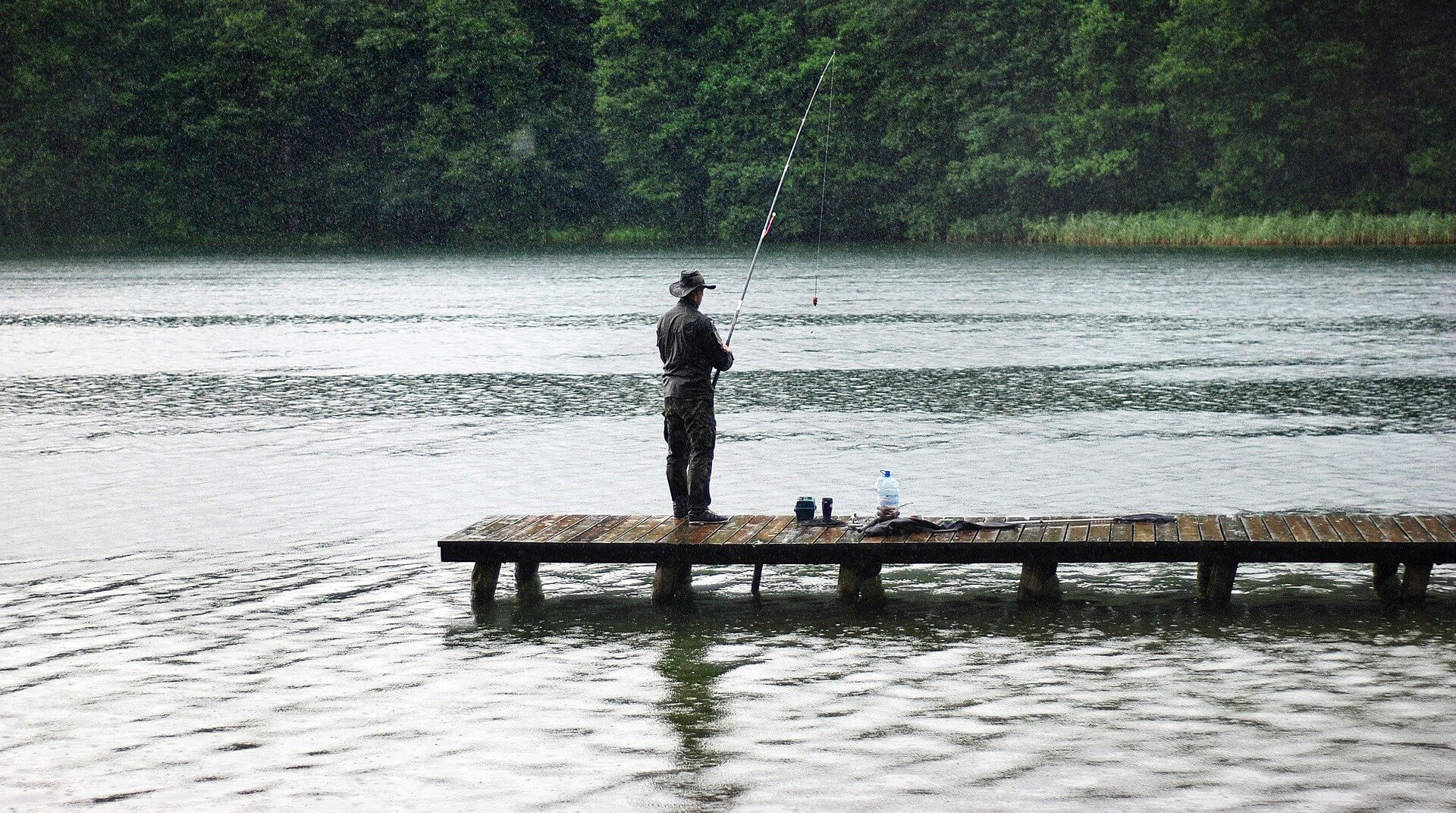
What to take with you in rainy weather
If the forecast foreshadows a thunderstorm downpour, there is every chance that after it there will be a time of intense gluttony. In summer, it is simply a sin to miss such an opportunity – even with a little experience, you can train little things, or even get hold of unexpectedly large fish .
But if prolonged rains, wind and cold snap are predicted, it is better to postpone the departure – there will most likely not be an intense bite, and the degree of comfort will leave the best. This is especially true for the already cool spring and autumn days.
For fishing it is worth taking:
- Waterproof clothing . This can be an army raincoat, raincoat, chemical protection kit, or a waterproof suit specially designed for fishing or hunting in adverse conditions.
- Boots . The best option is high bog boots. As already mentioned, it is better to fish in the rain at a considerable distance, so it is better to equip yourself for entering the water.
- A spare set of uniforms . A change of clothing and footwear is a must in any case, even if you are sufficiently protected from the rain.
- Umbrella . There are special large umbrellas for fishing (similar to beach umbrellas, but protecting from the rain). They are fixed in the ground and leave your hands free.
- Thermos with hot drink or soup . This is the best option to keep warm and, in the case of soup, to have a snack at the same time.
If you are planning a multi-day trip, it is better to get:
- a good automatically folding tent (in the rain, instant folding is just a salvation);
- a folding bed or an inflatable mattress bed (there are self-inflating models), so as not to sleep on the cold wet ground;
- sleeping bag (it keeps warm well);
- a gas burner with a cylinder (it is unlikely to make a fire in wet weather). Do not forget to bring a couple of regular lighters – matches can get damp easily.
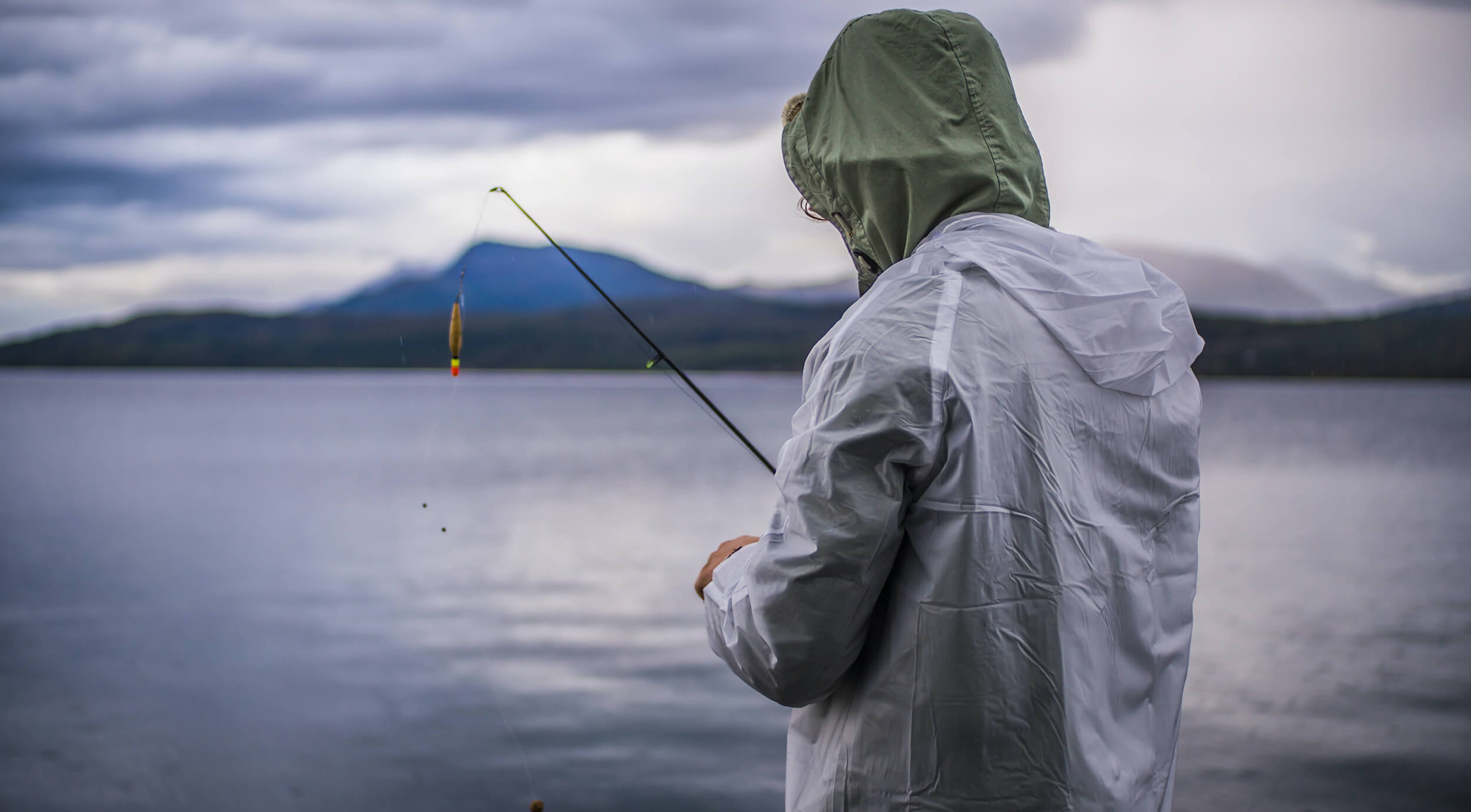
Tips for beginners
It’s time for traditional tips for novice anglers:
- At first, refrain from going out in bad weather. At the beginning of the fishing journey, it is better not to go fishing on the eve of or during the rain. This can smear all positive impressions and end with a banal cold.
- Don’t trust the forecasts too much. No matter what the forecasters say, there is always a risk that the weather will deteriorate. Therefore, even in sunny weather, a prudent angler has at least a raincoat in his arsenal.
- Give preference to animal and hard plant baits. In the rain, even peaceful fish bite better on animal baits: maggots, worms, caddis larva, and so on. It also goes well for democratic barley flavored with unrefined vegetable oil.
- Feed harder than normal. If the movement of masses of water is very intense, which is observed in strong winds, it is recommended to feed more and more often than under normal conditions.
- Look for the positive. In rainy weather, the shores of even the most visited bodies of water are relatively free, so you can take the coolest place.
No one can accurately predict the behavior of a fish: sometimes it does not want to bite under the most favorable conditions. Do not be discouraged: next time you will definitely be lucky and you will be rewarded with a decent catch for perseverance!

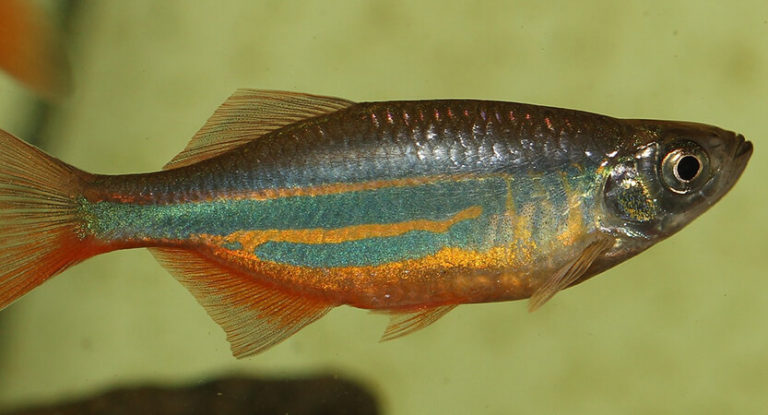
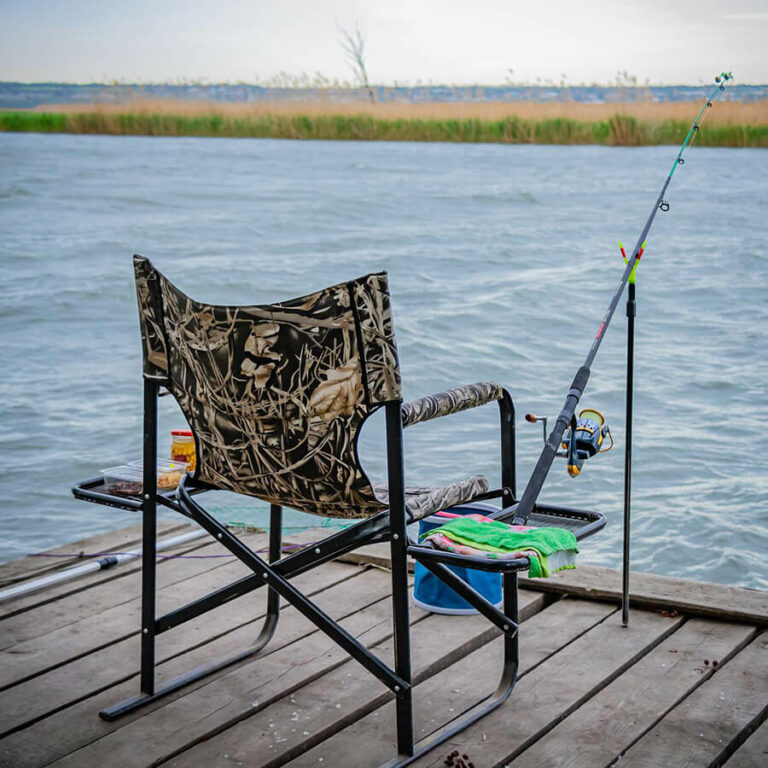
![The 10 Best Fishing Backpacks in 2023 [Detailed Guide] 16 The 10 Best Fishing Backpacks in 2023 [Detailed Guide]](https://trizily.com/wp-content/uploads/2022/03/best-fishing-backpacks-768x768.jpg)
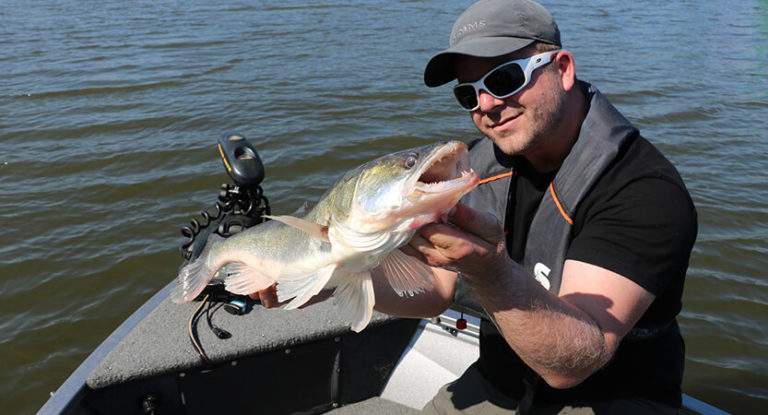
![The 8 Best Fishing Tackle Boxes [Buying Guide] 28 The 8 Best Fishing Tackle Boxes [Buying Guide]](https://trizily.com/wp-content/uploads/2022/03/best-fishing-tackle-boxes-768x768.jpg)
